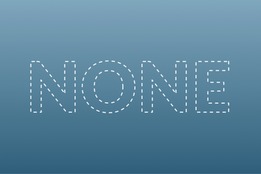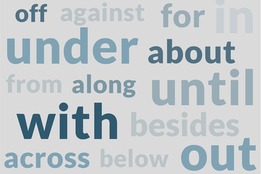The Words of the Week - Oct. 21

’Exorbitant’
Exorbitant spiked in lookups last week, after the word appeared in articles about money the Secret Service paid in staying at properties owned by Donald Trump.
House panel: Trump’s bills to Secret Service ‘exorbitant’
— (headline) Associated Press, 17 Oct. 2022
We define this sense of exorbitant as “of a price, charge, or rate : grossly exceeding normal, customary, fair, and just limits.” The word may also mean “not coming within the scope of the law.” When it first came into use in English (in the 15th century) its meaning was quite a bit different: “wandering or deviating from the normal or ordinary course.” The word can be traced to the Latin orbita, meaning "track of a wheel or rut” and the prefix ex-, meaning "out of.”
’Diverse’
A number of people turned to their dictionary to look up the word diverse, following comments by a regent for the University of Minnesota in which he appeared to suggest that the school had a surfeit of diversity.
A regent for the University of Minnesota issued an apology for his comments about the university's Morris campus being "too diverse."
— Devin Ramey, KARE 11, 19 Oct. 2022
Diverse, as used by the regent above, is defined as “composed of distinct or unlike elements or qualities.” This sense is commonly applied to things such as groups of people. The word may also be defined as “unlike; differing from one another,” a sense that is more often used when referring to things such as interests that people might have.
’Acquit’
Acquit spiked in lookups, as often is the case when someone is acquitted in a notable trial. In this instance it was caused by the acquittal of Igor Danchenko, an analyst who had been accused of lying to the FBI, regarding his role in a dossier of information about former president Trump.
Steele dossier source acquitted, in loss for special counsel Durham
— (headline) The Washington Post, 18 Oct. 2022
Acquit has a variety of meanings; the one most relevant to Danchenko’s case is “to discharge completely (as from an accusation or obligation).” The word may additionally mean “to conduct (oneself) usually satisfactorily especially under stress,” and has archaic uses such as “to pay off (something, such as a claim or debt).”
’Casino’
Casino also had a busy week, following a number of news outlets reporting on the possibility of New York City acquiring a number of new gambling establishments.
Times Square May Get One of the Few Spectacles It Lacks: A Casino
— The New York Times (headline) 19 Oct. 2022
A casino is “a building or room used for social amusements; specifically, one used for gambling.” The word comes from the Italian casa, meaning “house,” an etymological connection that remains today, as one of the senses we give for the word house is “a gambling establishment” (this sense is usually used with the definite article: the house). This sense of house is often encountered in the expression the house always wins, which has been used in English for over a hundred years now to refer to casino having an unfair advantage over its visitors.
Braving the fates — Prevalence of a species of petty gambling where the “house” always wins.
— Chicago Daily Tribune, 30 Jan. 1892”Are the cards dealt one at a time?” “Yes, except when Mr. Dealbrace deems it expedient to deal two and, according to the rules of the game, when he does that the house always wins.”
— James L. Ford, Cosmopolitan (New York, NY), Feb. 1906
Words Worth Knowing: ‘Age-mate’
Our word worth knowing this week is age-mate, defined as “one who is of about the same age as another.” The word has been in use since the late 16th century, but is little-used today.
In order to feel good about his life every child has to have some sense of belonging. He needs to find people whom he likes and whom he wants to be with. Moreover, he needs to find among his age-mates children who like him and who want him.
— Louis E. Raths & Anna Porter Burrell, Understanding the Problem Child, 1963












